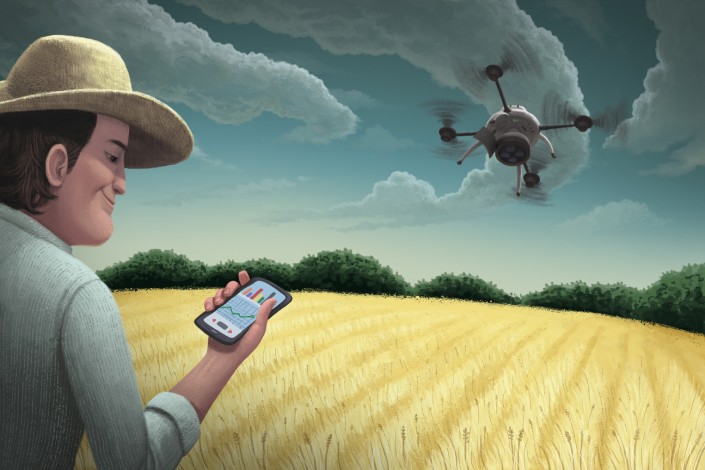Coming soon: Airborne sensors will help farmers improve crop yields

Illustration: Division of Research
Drones will soon become important tools for farmers, carrying sensors that will monitor crops, improve yields and manage the use of important resources – especially water – scientists at Texas A&M AgriLife Research say.
Using tractors for the early rounds of experiments, the scientists are testing sensors at the AgriLife Research station in Weslaco, a town in the Rio Grande Valley.
Among the sensors under evaluation are ultrasound sensors to measure plant height, infrared thermometers to measure plant and soil temperatures, and hyperspectral sensors to measure the water content of leaves.
The sensors gather and transmit data to a web-based software. Analysis of the data will help farmers to make better decisions about when and where to irrigate, fertilize or apply insecticides.
Juan Enciso, an AgriLife Research irrigation engineer in Weslaco, says, “The next step in this research is to identify exactly which sensors are needed, which can be combined, then make them light enough to be carried by a drone.”
Enciso is also an associate professor of biological and agricultural engineering in the College of Agriculture and Life Sciences.

